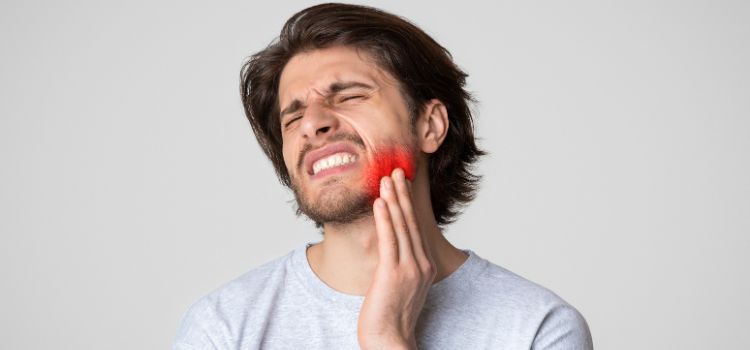Vitamin D and Teeth Grinding
16th Aug 2025

Teeth grinding, or bruxism, often happens during sleep and can leave you with a sore jaw or worn-down teeth. Stress and poor sleep are common triggers—but could low vitamin D also be a factor?
In this post, we’ll look at the possible link between vitamin D and teeth grinding, what the research says, and how vitamin D affects your muscles, mood, and overall health.
Is There a Link Between Vitamin D Deficiency and Bruxism?

Right now, research on the direct link between vitamin D and teeth grinding is still limited. There isn’t strong scientific proof that a vitamin D deficiency causes bruxism—but there are a few interesting connections worth noting.
Some studies suggest that low vitamin D levels may be linked to muscle pain, poor sleep, and anxiety. These issues are also known to increase the chances of clenching or grinding your teeth, especially at night.
Important: So while vitamin D might not be the direct cause, not getting enough of it could be one piece of the puzzle—especially if you're dealing with other symptoms like stress, poor sleep, or jaw tension.
Can Vitamin D Supplements Help with Teeth Grinding?
If you think low vitamin D might be playing a role in your teeth grinding, you might be wondering if taking a supplement could help. The short answer is—it might, especially if you're deficient.
Some research shows that people have found relief from symptoms like jaw tension and nighttime clenching after improving their vitamin D levels.
Vitamin D helps support healthy muscles, nerves, and mood. So if your body isn’t getting enough, it can lead to muscle tension, poor sleep, and higher stress levels—all of which are common triggers for bruxism.
Note: While a supplement alone may not stop teeth grinding, it could be a helpful part of your overall plan—especially when combined with professional dental care.
Related Articles:
- Vitamins And Supplements To Treat TMJ
- Best Vitamins for Strong Teeth and Healthy Gums
- Discover Which Sleep Supplements Actually Work
Understanding Bruxism and What Causes It
Bruxism is the habit of clenching or grinding your teeth, often during sleep. Some people don’t even realize they’re doing it until they notice the signs—like jaw pain, worn-down teeth, or headaches.
The most common causes of bruxism include:
- Stress or anxiety
- Poor sleep quality or sleep disorders
- Misaligned teeth or bite issues
- Lifestyle habits like smoking, alcohol, or too much caffeine
Note: But lately, some people are starting to ask whether vitamin or mineral deficiencies—especially low vitamin D—could also play a role.

- Most Popular
- Hard Outside, Soft Inside
- 2MM Thick
- Moderate / Heavy

- Most Durable
- Hard Materials
- 1.5MM Thick
- Heavy / Severe

- For Day Time Use
- Thin, Barely Visible
- 1MM Thick
- Light / Moderate

- For Clenching
- Flexible & Soft
- 1.5MM Thick
- Light / Moderate
What Does Vitamin D Do in the Body?
Vitamin D plays a big role in your overall health. It helps your body absorb calcium, keeps your bones strong, and supports your immune system. But that’s not all—it also affects your muscles, nerves, and mood. Here’s how vitamin D can impact your body:
Muscle function
Low vitamin D may lead to muscle weakness or tension, including in your jaw.
Nerve health
It helps keep your nervous system working properly, which may affect how your body responds to stress or tension.
Mood regulation
Vitamin D plays a part in managing mood, and low levels have been linked to anxiety and depression—both of which can trigger or worsen teeth grinding.
Note: Because vitamin D affects so many parts of the body, a deficiency might not directly cause bruxism—but it could make some of the contributing factors worse.
Signs of Vitamin D Deficiency That May Worsen Bruxism

Muscle pain or tightness
Low vitamin D can lead to muscle tension, including in your jaw—making clenching and grinding more likely.
Fatigue
Feeling tired during the day, even after sleep, can add stress to your body and increase the chances of nighttime bruxism.
Anxiety and mood changes
Low vitamin D levels are linked to anxiety and depression, which are common triggers for teeth grinding.
Sleep problems
Vitamin D deficiency may affect sleep quality. Poor sleep is a known factor in nighttime grinding.
Frequent headaches
Headaches can result from jaw clenching or may be a sign that you're grinding at night without realizing it.
Note: If you're experiencing teeth grinding along with muscle tension, sleep issues, or low mood, it might be time to look into your vitamin D levels as part of the bigger picture.
Other Nutrients That May Help with Bruxism
Vitamin D isn’t the only nutrient that may affect teeth grinding. Several other vitamins and minerals play a role in muscle and nerve function—and when your body doesn’t get enough of them, it could make bruxism symptoms worse.
Here are a few nutrients that may help:
Magnesium
Helps relax muscles and calm the nervous system. Low magnesium can cause jaw tension, cramps, and sleep issues—all linked to bruxism.
Calcium
Works with magnesium to support healthy muscle and nerve function. A deficiency may lead to jaw spasms and clenching.
B Vitamins (B5, B6, B12)
Support brain and nerve health. These vitamins may help lower stress and anxiety, which are common bruxism triggers.
Pro Tip: Eating a balanced diet or taking supplements (with your doctor’s guidance) may help reduce grinding by supporting your overall health.
Related Articles:
Natural Ways to Manage Bruxism
If you’re looking for ways to manage teeth grinding naturally, the good news is there are several simple steps you can take—especially when paired with proper dental care.
Here are some natural ways to help reduce bruxism:
Get enough vitamin D and other key nutrients
Support your muscles and nerves by eating a balanced diet and getting regular sunlight. Talk to your doctor if you think you might need supplements.
Reduce stress and anxiety
Stress is one of the most common triggers for bruxism. Try relaxation techniques like deep breathing, meditation, light exercise, or journaling to help calm your mind—especially before bed.
Improve your sleep habits
Getting quality sleep can help your body relax and reduce nighttime grinding. Stick to a regular sleep schedule, avoid screens before bed, and create a peaceful bedtime routine.
Stay hydrated
Dehydration can lead to muscle cramps, including in the jaw. Drinking plenty of water throughout the day helps keep your body balanced.
Avoid too much caffeine or alcohol
Both can increase muscle tension and make teeth grinding worse, especially in the evening.
Note: These lifestyle changes may not stop bruxism completely, but they can help reduce the severity of symptoms—and improve your overall well being.
Final Thoughts: Vitamin D and Teeth Grinding
There’s no solid proof that low vitamin D causes teeth grinding, but it may affect stress, sleep, and muscle tension—common triggers for bruxism.
If you're feeling tired, anxious, or tense along with grinding, it might be worth checking your vitamin D levels. Simple steps like getting more sunlight, eating better, or taking a supplement could help.
Still, treating bruxism usually takes more than one fix. Supporting your health is key—but so is protecting your teeth. A custom-fit night guard from Pro Teeth Guard can help. It protects your teeth while you sleep and gives your jaw the relief it needs.
References:
- Pavlou, I. A., Spandidos, D. A., Zoumpourlis, V., & Adamaki, M. (2023). Nutrient insufficiencies and deficiencies involved in the pathogenesis of bruxism (case reports and literature review). Experimental and Therapeutic Medicine, 26(6), Article 563. https://doi.org/10.3892/etm.2023.12262
- Kui, A., Buduru, S., Labunet, A., Balhuc, S., & Negucioiu, M. (2021). Vitamin D and temporomandibular disorders: What do we know so far? Nutrients, 13(4), Article 1286. https://doi.org/10.3390/nu13041286

- Most Popular
- Hard Outside, Soft Inside
- 2MM Thick
- Moderate / Heavy

- Most Durable
- Hard Materials
- 1.5MM Thick
- Heavy / Severe

- For Day Time Use
- Thin, Barely Visible
- 1MM Thick
- Light / Moderate

- For Clenching
- Flexible & Soft
- 1.5MM Thick
- Light / Moderate
